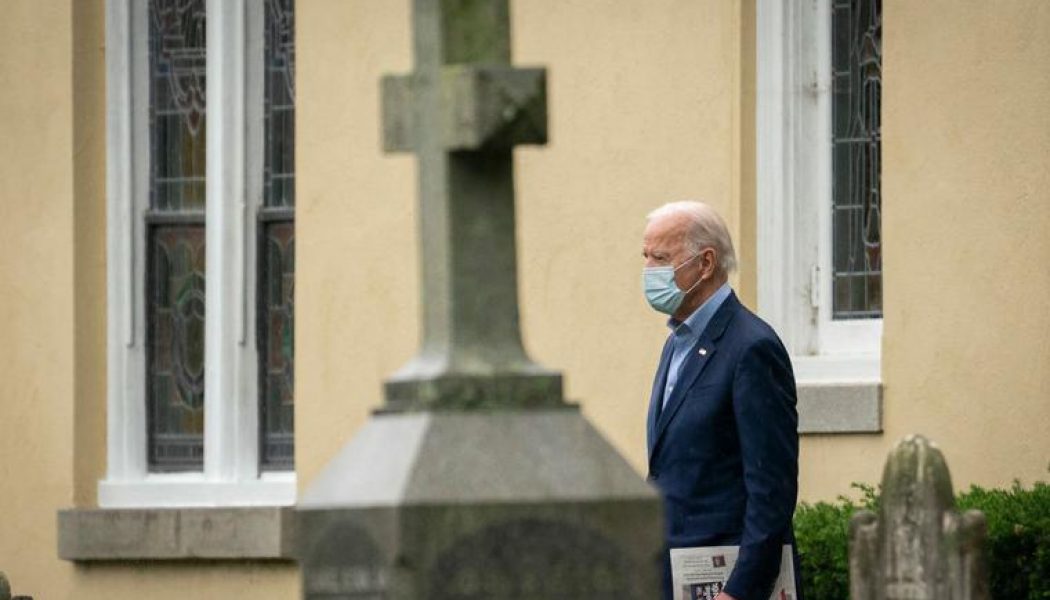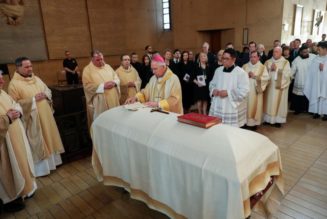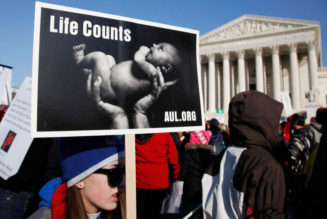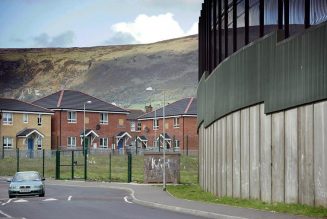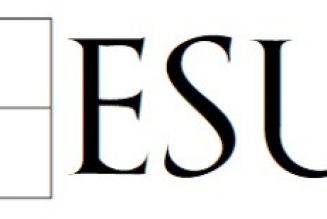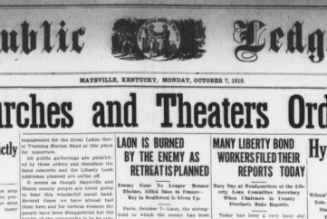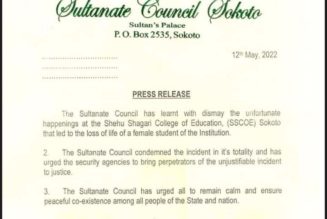
Cardinal Wilton Gregory of Washington offered a welcoming smile to presumptive President-elect Joe Biden, promising dialogue on matters of mutual agreement instead of disagreement over abortion and religious liberty. In return, Biden kicked the Catholic Church in the teeth.
The nomination of Xavier Becerra, attorney general of California and a Catholic, as secretary of Health and Human Services (HHS), signals that a Biden White House intends to fully turn the screws upon Catholics and other religious believers in service of a radical pro-abortion and anti-religious-liberty agenda.
Becerra, among various outrages, went to the Supreme Court in order to force pro-life pregnancy centers to advertise abortions. He lost that time. But he will be back again, leading HHS in resuming its Obama-Biden-era litigation against the Little Sisters of the Poor.
So what are the U.S. bishops to do about a Catholic in the White House who is aggressively pursuing policies contrary to the settled teaching of the Catholic Church? In particular, should Joe Biden be refused Holy Communion?
At the conclusion of the USCCB meeting in November, Archbishop José Gomez of Los Angeles, president of the conference, announced a task force that will steer interactions with the new president.
Short-circuiting that examination, Cardinal Gregory announced that he would prefer cooperation rather than confrontation with the new president and that he would not deny Biden Holy Communion, just as he was not denied Holy Communion for the eight years he served as vice president.
The new cardinal’s approach was challenged on two fronts of late.
It was explicitly challenged by Archbishop Charles Chaput, emeritus of Philadelphia, who hammered Cardinal Gregory’s approach in First Things as “undermining the work of the task force to deal precisely with this and related issues” and giving “scandal to the many Catholics who struggle to stay faithful to Church teaching.”
It was implicitly challenged by Biden’s nomination of Becerra: It would be hard to imagine a nominee more hostile to pro-life and religious-liberty concerns than Becerra. Biden met Cardinal Gregory’s outstretched hand with a clenched fist to the face.
All of this returns to prominence the question of Holy Communion for Catholic political leaders such as Biden. Of course, he is not alone — but he alone will be president.
Herewith, then, are six questions for the bishops’ task force about Holy Communion.
Eucharistic Discipline in General
Canon 915 of the Code of Canon Law makes it clear that those who “obstinately persist in manifest grave sin are not to be admitted to Holy Communion.” Biden’s decades of support for the abortion license — including weeping for joy when Roe was upheld in 1992 — is clearly sinful, grave and “manifest”, i.e., publicly known.
Should he therefore be refused Holy Communion? The law is clear, but long-standing pastoral practice is not.
There are likely several, if not many, Catholics in nearly every parish who “obstinately persist in manifest grave sin.” Very few, if any, are refused Holy Communion if they present themselves.
Cardinal George Pell, sympathetic to a more robust Eucharistic discipline, writes in his recent Prison Diary:
“It will be very difficult pastorally to reform the ‘open house’ inclusive approach, because many regard the reception of Communion as being like accepting a biscuit and a cup of tea. … In an age of religious indifference and ignorance, the indiscriminate reception of Holy Communion is against the tradition and bad for the spiritual health of the Church.”
It may well be bad for the Church — and for the individual in question — but can it be changed? And if the “open house” approach is to be changed, should it begin with political leaders? Or in the parish with the cohabiting teacher in the local school? If it begins with the former and not the latter, does the Church therefore choose to play politics rather than offer pastoral guidance?
If the “open house” policy is “against the tradition,” should the Church attend to its own house first before cleaning up the White House?
Should Canon 915 Always Be Enforced?
There are tens of thousands of Catholic political leaders at all levels who might be refused Holy Communion under Canon 915. Would it be wise to do so? Archbishop Chaput writes:
“I believed [in 2004], and believe now, that publicly denying Communion to public officials is not always wise or the best pastoral course. Doing so in a loud and forceful manner may cause more harm than good by inviting the official to bask in the media glow of victimhood. What I opposed in 2004, however, was any seeming indifference to the issue, any hint in a national bishops’ statement or policy that would give bishops permission to turn their heads away from the gravity of a very serious issue.”
So it is not so clear as simply stating that Canon 915 applies; it may not be wise to apply it. After all, no bishop enforces the entirety of the code all the time.
But there are (a few) bishops who would judge Archbishop Chaput to be dangerously lax. The task force needs to take up those issues.
Should Canon 915 Be Geographically Enforced?
What happens if Canon 915 is enforced in some parishes or dioceses and not elsewhere? Cardinal Donald Wuerl, emeritus of Washington, once noted that he was not “bishop of the United States.”
For example, whether Biden should receive Holy Communion was a matter for the bishop of Wilmington, Delaware, and whether Nancy Pelosi should receive was a matter for the archbishop of San Francisco.
Canon 916 warns individual Catholics that they should not seek to receive Holy Communion in a state of sin. Is it enough to remind Catholics — including Biden — about his obligations under Canon 916 and not enforce Canon 915, as it is impractical to do so without geographical inconsistency?
The Question of Scandal
The argument for treating public figures differently from ordinary parishioners is that they give scandal, in the specific sense of leading others into sin by creating confusion. Someone might think that if such-and-such an official can receive Holy Communion, then the Church cannot really mean what she teaches about either the moral law or the Eucharist.
Scandal is not easy to determine. If scandal is the criterion, it is likely that the bishops ought to be more concerned about celebrities than attorneys general, whom very few people would recognize. Rarely are objections heard about popular athletes receiving Holy Communion, even if their particular choices might have a greater effect on young people than the speaker of the state legislature.
The question of scandal might explain why a President Biden should be treated differently than Vice President Biden or Sen. Biden. If his pastoral treatment is to change, there ought to be a reason provided for that.
The Question of Politics
The Becerra nomination raises another issue for the task force: If Biden wishes to play hardball politics with Catholic interests on public policy issues, does the Catholic response need to take into account politics, as well, and not just pastoral care for Joe Biden’s soul?
Theodore McCarrick argued as a cardinal in 2004 that the Eucharist ought not become a “political” weapon. No one suggested that it should be that, but do U.S. Catholics need political weapons? If so, is it the bishops’ task to employ them, or does that belong elsewhere?
The 2004 Ratzinger Letter
Archbishop Chaput, like several others, refers to a memorandum sent by Cardinal Joseph Ratzinger to Cardinal McCarrick in 2004, when the U.S. bishops were debating Holy Communion in regard to Sen. John Kerry of Massachusetts, another pro-abortion Catholic. Entitled “Worthiness to Receive Holy Communion: General Principles,” it argued for enforcing Canon 915 in regard to politicians who promote abortion and euthanasia after they have been privately instructed not to receive. Cardinal Ratzinger’s memorandum made reference to previous clarifications from the Pontifical Council for Legislative Texts.
Given the emphasis placed on the 2004 Ratzinger memorandum, the task force should determine whether it, as Archbishop Chaput writes, “remains in effect.” Cardinal Gregory’s observation about the eight years Biden served as vice president needs to be addressed.
From 2009 to 2013, Ratzinger/Benedict was pope, and Cardinal Wuerl was in Washington. The cardinal was frequently in Rome in those years. If Pope Benedict thought Canon 915 should be enforced on Biden in line with his 2004 memorandum, he could have made that clear. If he didn’t, why might that be? Given intervening history, the 2004 memorandum does not simply end the debate.
The bishops’ task force will have the task of reviewing what has changed since 2004, what remains the same — and much else besides.
Join Our Telegram Group : Salvation & Prosperity
